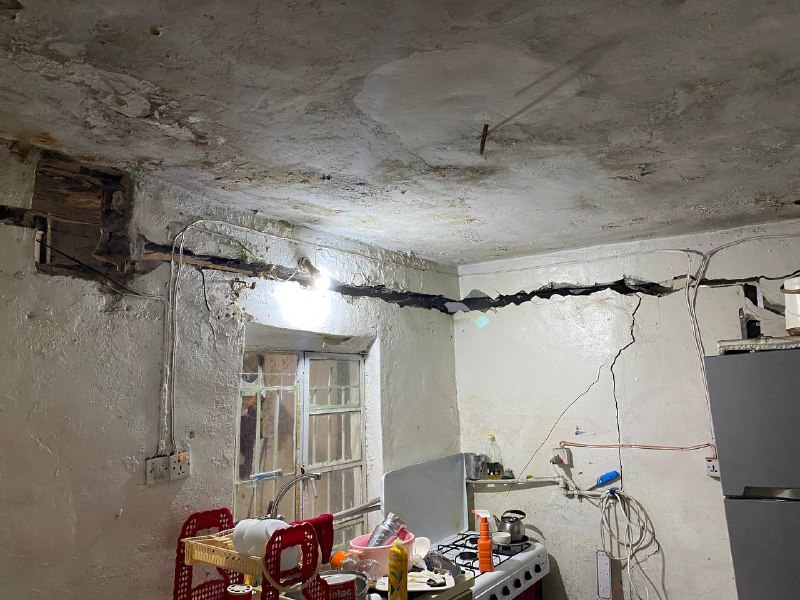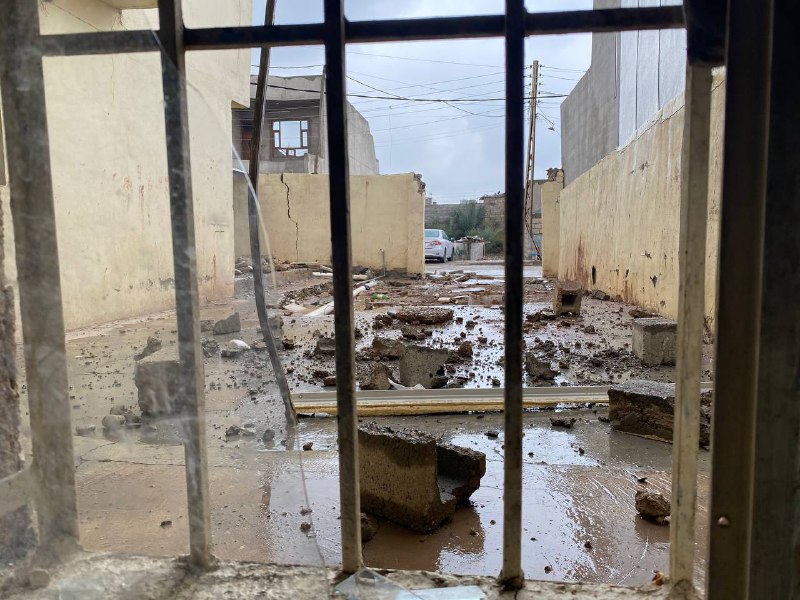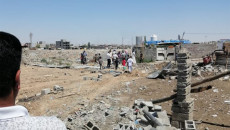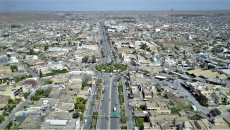Tens of residents of a neighborhood in the city of Kirkuk live in constant anxiety, fearing the collapse of their houses as a result of water leakage from a main pipeline for drinking water broken months ago, yet due to building some houses over the pipeline illegally, relevant local authorities are unable to handle the issue, pushing families to evacuate their homes.
The main underground pipeline was broken last August, which led to the leakage of water under tens of houses in Al-Shorja neighborhood, and the leakage has not been addressed so far by the concerned authorities.
Kamran Muhammad, a resident of Al-Shorja neighborhood, said, "The broken pipe led to the flow of water from underground and it has extended to several houses, causing cracks in the walls of those houses."
“It obstructs the passage of vehicles in surrounding blocs in fear of collapse."
The broken pipe led to the flow of water from underground and it has extended to several houses
Kamran and other residents of the neighborhood visited the Kirkuk Water Department several times, without addressing their problem.
The water leaking from the broken main pipe initially flowed into one of the houses in the neighborhood and that house was evacuated, but the leakage later spread to other houses and alleys of the neighborhood, five houses were evacuated as the leakage led to cracks in the walls of about 30 houses.
Ahmed Aziz, who lives in the same neighborhood, told KirkukNow, "Since we learned that pipe was broken, we have consulted the governor, the water department and other officials in Kirkuk, but we did not get a response."
The oil-rich city of Kirkuk, pumps 2-3 million barrels a month generating hundreds of million Dollars for national revenues which 90% rely on oil marketing while the province suffers from proper basic public services in all sectors, in particular education and healthcare.
Kirkuk, Iraq’s second largest reserves, located 238 kilometers north of Baghdad, is an ethnically mixed province for 1,7 million Kurds, Arabs, and Turkmens. It has long been at the center of disputes between Baghdad and the Erbil.
According to the statistics of the Kirkuk administration, more than 61,000 buildings, including houses, stores and others, were built illegally and randomly all over Kirkuk.

Kirkuk, January 16, 2022: Cracks occurred in a house due to water leakage from a broken main pipe. KirkukNow
According to the follow-up by KirkukNow correspondents, the illegal construction of houses on that pipeline is what caused these problems for the Kirkuk Water Department.
"This is true, many houses were built illegally on that pipe, but the damage is not the houses of the trespassers but rather we who have registered and legally built houses," Aziz added.
After the fall of the Baath regime, many houses and neighborhoods were built illegally outside the basic design map of the municipality of Kirkuk, and this is one of the problems that Kirkuk administration has not been able to find a radical solution so far.
"My house is newly built, but it has had many cracks. Who will be responsible if the house collapses on my head?" Aziz added.
Jihan Ibrahim, deputy director of the Kirkuk Water Department, confirmed to KirkukNow that the department is aware of this problem. "It is not permissible for citizens to build their houses on water pipelines, especially if these houses are built illegally. The broken pipe is one of the main lines that delivers drinking water to the Shoraw neighborhood.”
“Now we are in the process of finding the exact location of the burst...But in fact, the pipe cannot be repaired unless the houses around it are demolished,” Ibrahim added.
"It is difficult for us to find the fracture site easily because there are houses built illegally on the pipe, which is very large so the water has seeped to other places and flows from several areas meaning the task is not easy."
Following fall of Saddam regime in 2003, thousands of people expelled from Kirkuk and disputed territories have received plots of lands from the Kurdish parties ruling the region without being officially registered or permitted by local authorities.
Kirkuk administration provided basic services to some of the blocs but later it was stopped by Iraqi government. The local authorities gave notice of evacuation to the residents whom declined to leave unless compensated.







